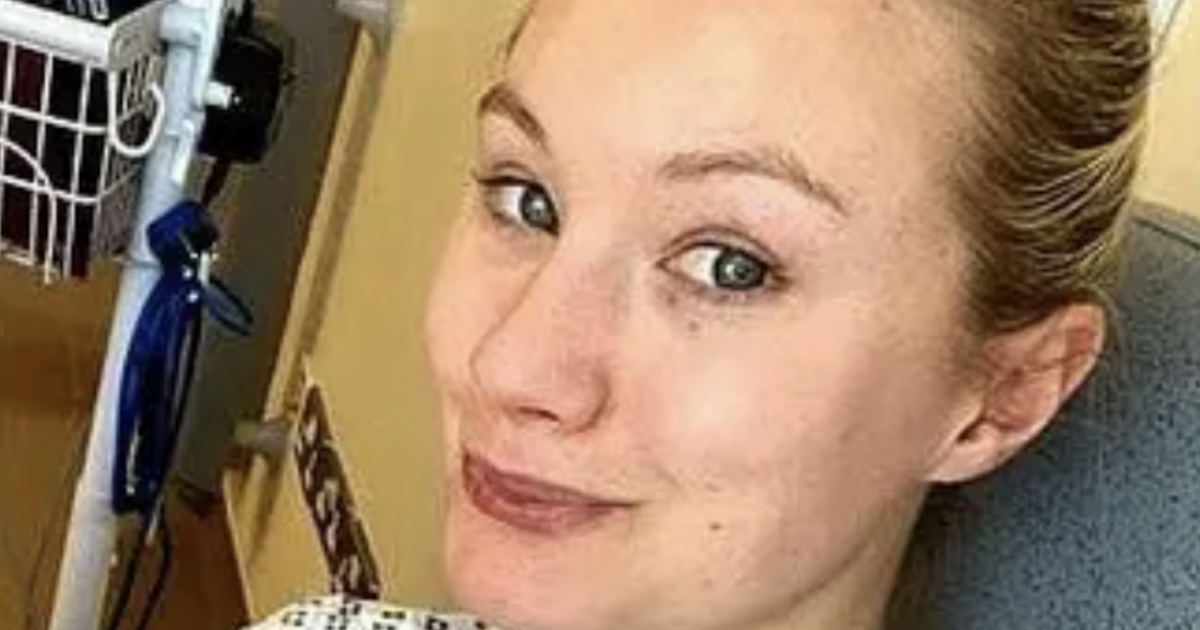Woman's Melanoma Misdiagnosed as Fungal Infection
- A journalist for the BBC, Sarah Lee, was diagnosed with melanoma, a rare and deadly skin cancer, after being told it was a fungal infection. She’s encouraging others to protect their skin and get skin checks.
- According to the American Cancer Society (ACS), 5.4 million basal and squamous cell skin cancers are diagnosed each year in the U.S. Skin cancer is the most commonly diagnosed type of cancer in the U.S.
- Protecting your skin by wearing sunscreen and getting skin checks is so important.
The journalist called her diagnosis a “terrifying surprise,” reports Insider.
Read MoreTook a while to put my story into words. But here it is, gory pics n’all 😫
Jokes aside, PLEASE don’t underestimate the damage the sun can do. Wear SPF, a hat, stay in the shade and get your moles checked. 🎗 https://t.co/lGpQBffw0U— Sarah Lee (@sarahkatelee_) August 12, 2022
“When the nurse told me the news over the phone, I was so shocked I almost collapsed,” says Lee. “I wasn’t a sunbed user, I used factor 30 sun cream and I grew up in Wales, where it almost always rains.”
Lee discovered a “pea-sized black mole” on her scalp in July 2021. She received her cancer diagnosis six months later, after “three virtual family-doctor consultations, and two dermatology reviews.”
Lee’s official diagnosis was “stage three malignant nodular melanoma,” which meant it had spread to her lymph nodes. She underwent an eight-hour surgery “to remove 24 lymph nodes, including from her neck.”
Examining Your Skin for Melanoma
Finding skin cancer early can save a person's life, especially in the case of melanoma, which is typically much more aggressive. Even a cute-looking freckle can be melanoma; therefore it's important to know how to identify potential skin cancer between annual or bi-annual skin checks.
Dr. Cecilia Larocca, a dermatologist at Dana-Farber Cancer Institute, recommends looking at your skin once a month for anything suspiciousand using the acronym ABCDE as a checklist:
- Asymmetrical moles: if you drew a line straight down the center of the mole, would the sides match?
- Borders: irregular, jagged, not smooth; can also stand for bleeding
- Colors: multiple distinct colors in the mole
- Diameter: larger than 6mm, about the size of a pencil head eraser
- Evolution: This may be the most important thing that changes over time, such as gaining color, losing color, pain, itching, hurting, changing shape, etc.
Remember 'ABCDE' When Performing Skin Checks
Protecting Yourself from Skin Cancer
According to the American Cancer Society (ACS), 5.4 million basal and squamous cell skin cancers are diagnosed each year in the U.S. Skin cancer is the most commonly diagnosed type of cancer in the U.S.
Protecting your skin by wearing sunscreen and getting skin checks is so important. Skin cancer is the most commonly diagnosed type of cancer in the U.S., and you can protect yourself and lower your skin cancer risk by taking prevention steps.
In an earlier interview, dermatologist Dr. Dendy Engelman outlines five easy ways to protect your skin, and lower your skin cancer risk. She tells us:
- Avoid sun during peak hours. This means from 10 a.m. to 2 p.m. It doesn't mean you should never go outside during the middle of the day, but make sure you're protected when you do venture outdoors.
- Cover your skin and eyes. A wide brim hat and sun glasses will protect your face, the top of your head, your ears, and the delicate skin around your eyes.
- Wear an SPF of 30 or higher. Plenty of facial moisturizers have SPF built into them. Reapply often.
- Get an annual skin check. You can check your own skin for anything that looks out of the ordinary, but you should still get a yearly check to make sure you didn't miss anything. If you do happen to notice anything out of the ordinary in between checks, schedule an appointment to talk to your doctor about it ASAP it is always worth it to make sure.
- Avoid tanning beds. "There's absolutely no benefit to going to a tanning bed," Dr. Engelman says.
Top 5 Ways to Protect Your Skin From Skin Cancer
Contributing: SurvivorNet staff
Learn more about SurvivorNet's rigorous medical review process.


